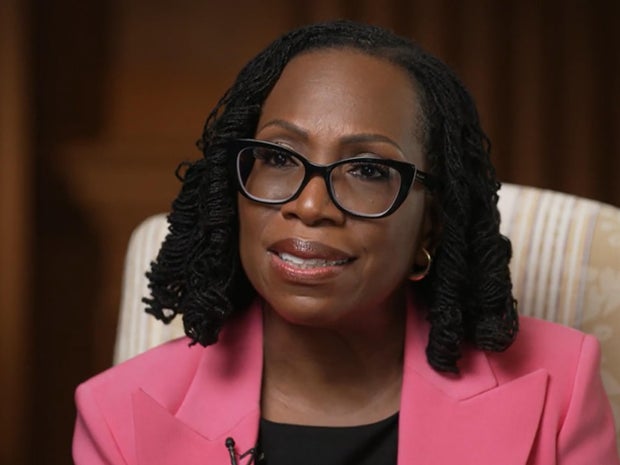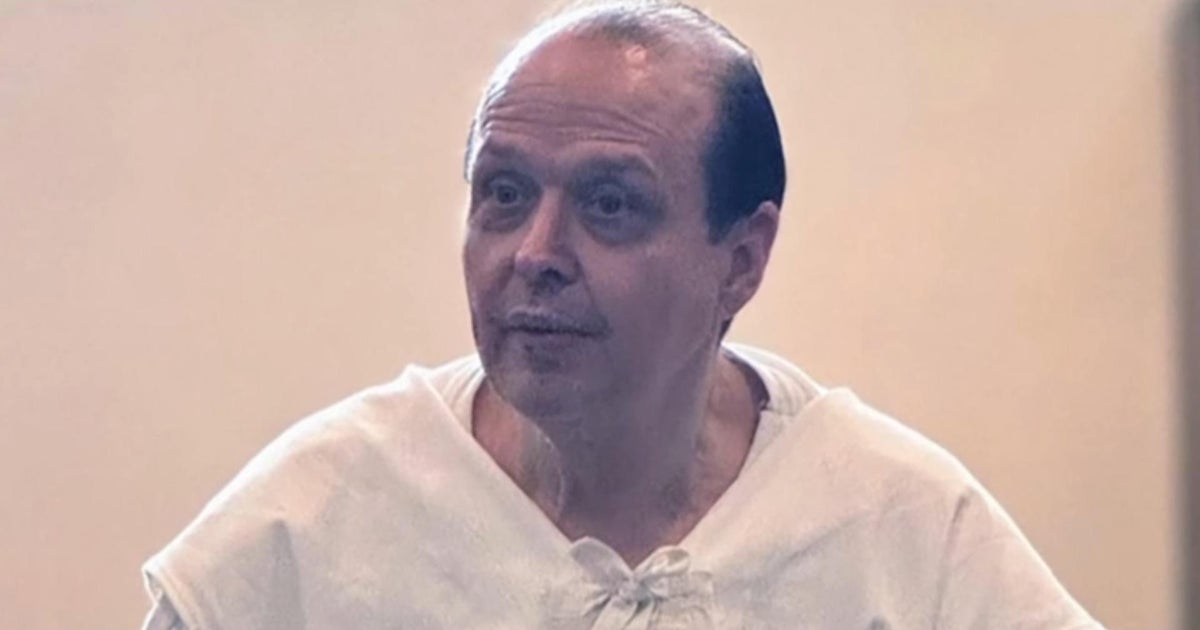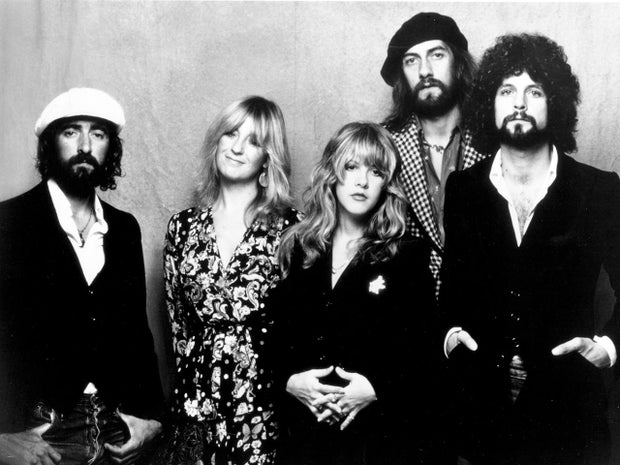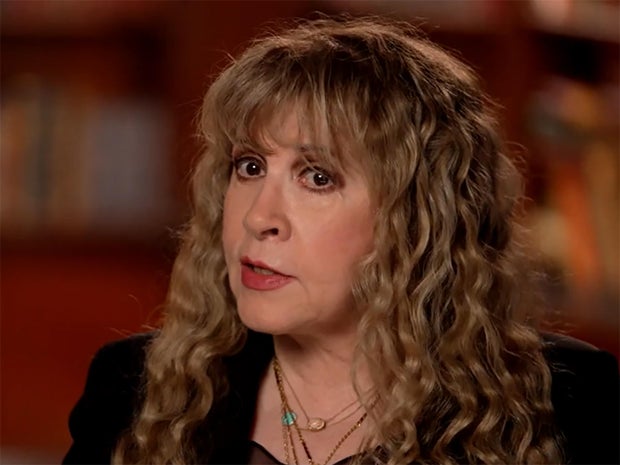CBS News
Justice Ketanji Brown Jackson on Supreme Court ethics and the future of the court
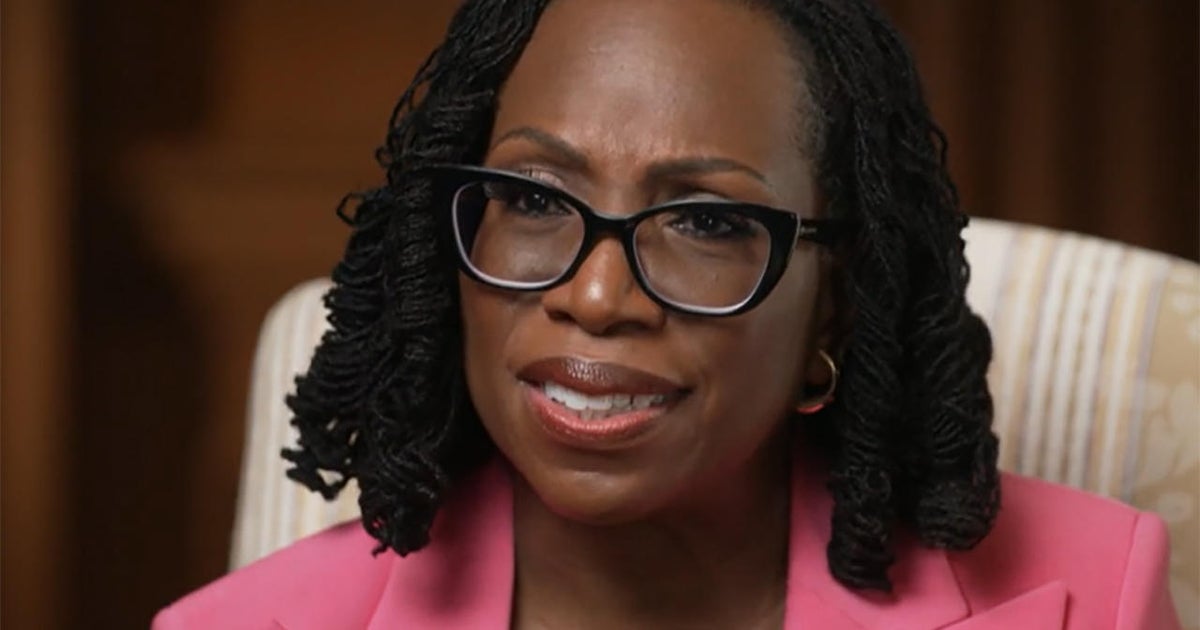
Justice Ketanji Brown Jackson is the first Black woman to serve on the Supreme Court — and she’s determined not to be the last.
Jackson’s new memoir, “Lovely One,” which will be released Tuesday, chronicles her ascent to the nation’s highest court and is titled after the meaning of her name, Ketanji Onyika. The 53-year-old justice sat down with “CBS Evening News” anchor and managing editor Norah O’Donnell for her first broadcast interview since joining the Supreme Court two years ago, candidly sharing a journey that humbles her.
On being “the first” and tackling tough cases
“I think there’s a fair amount of attention that comes with being the first,” Jackson said. “And when eyes are on you, you really do want to perform well.”
The high school national speech and debate champion quickly became the Supreme Court’s most prolific questioner among the current justices, and tied Justice Clarence Thomas for writing the most opinions last term.
She said questioning is a muscle she exercised as a judge on the U.S. District Court for the District of Columbia, where she authored more than 500 opinions.
CBS News
“I wasn’t doing anything different,” Jackson said about transitioning to the Supreme Court, after a brief stint on the federal appeals court in D.C. “And maybe I should have been. But I have questions, and we have a very complicated legal system. And these issues are hard.”
One of the hardest questions facing the court this year was about presidential immunity, presented in the case known as Trump v. United States. A 6-3 majority (including three justices appointed by former President Donald Trump) found that presidents have immunity for “official acts” taken in office, impacting special counsel Jack Smith’s prosecution of Trump regarding his alleged attempts to overturn the results of the 2020 election. Smith issued a superseding indictment this week that narrowed the allegations against Trump, seeking to shore up the case after the court’s ruling. Trump has pleaded not guilty in the case and denies wrongdoing.
Jackson wrote a dissent when the immunity question was decided in July, warning that “the majority’s ruling in this case breaks new and dangerous ground.”
“I was concerned about a system that appeared to provide immunity for one individual under one set of circumstances, when we have a criminal justice system that had ordinarily treated everyone the same,” Jackson told O’Donnell.
The justice who was appointed by President Biden has said she cannot “label” her judicial approach as liberal or conservative. Since being named to the court in 2022 as the 116th associate justice in U.S. history, she has joined the majority in 78% of cases. She told O’Donnell she’s working to become a better consensus builder — a skill for which her mentor, retired Justice Stephen Breyer, was known.
“No one can match Justice Breyer in that skill…” Jackson said. “But I think that’s aspirational. I would like to be better at forging consensus.”
Jackson quickly found her voice on the Bench, issuing several solo dissents in her first term. The court’s newest member doesn’t shy away from sparring with some of the more senior justices.
She notably tangled with Justice Clarence Thomas over affirmative action last year, when the court struck down race-conscious admissions policies at U.S. colleges in a pair of cases involving the University of North Carolina at Chapel Hill and Harvard College. (Jackson recused herself from the case involving Harvard, her alma mater.)
In a concurring opinion, Thomas wrote that Jackson believes “we are all inexorably trapped in a fundamentally racist society, with the original sin of slavery and the historical subjugation of Black Americans still determining our lives today.”
Jackson told O’Donnell she does not agree with Thomas’ characterization of her views. Jackson said her dissent pointed “out that we still exist in a society in which the gaps that were initially created as a result of slavery, as a result of Jim Crow, exist and that affirmative action, for example, was really a response. It was remedial to try to do something about the gaps that exist in wealth, in education, in health.”
Supreme Court ethics
Jackson would not comment on the backlash Thomas has faced for accepting millions of dollars worth of gifts over two decades — including previously undisclosed luxury travel and lodging from conservative billionaire Harlan Crow. Thomas said he did not believe he had to report the travel under the court’s rules at the time.
Jackson has disclosed receiving about $25,000 in gifts since joining the court (including Beyoncé concert tickets and a flower display from Oprah), as well as the advance for her book, “Lovely One,” of nearly $900,000.
“I follow the rules, whatever they are, with respect to ethical obligations,” Jackson told O’Donnell. “And it’s important in my view to do so. It really boils down to impartiality. That’s what the rules are about. People are entitled to know if you’re accepting gifts as a judge so that they can evaluate whether or not your opinions are impartial.”
The court adopted a formal code of conduct last year amid the fallout over undisclosed trips and gifts given to Thomas and Justice Samuel Alito. But the code lacks any enforcement mechanism, leading some Democrats to push for a stricter policy.
Jackson confirmed to O’Donnell that she would consider supporting an enforcement mechanism of the ethics code, a move that Justice Elena Kagan endorsed last month.
“I am considering supporting it as a general matter,” Jackson said. “I’m not going to get into commenting on particular policy proposals. But from my perspective, I don’t have any problem with an enforceable code.”
Mr. Biden and Vice President Kamala Harris have embraced the idea of court reform, including proposals to enforce the ethics code, impose term limits on justices and clarify that there is no immunity for presidents for crimes committed in office. Any such changes would require congressional approval.
Asked by O’Donnell about supporting President Biden’s proposal for a binding code of ethics, Jackson said, “A binding code of ethics is pretty standard for judges. And so I guess the question is, ‘Is the Supreme Court any different?’ And I guess I have not seen a persuasive reason as to why the court is different than the other courts.”
The Supreme Court and democracy
The public’s opinion of the nation’s highest court has fallen precipitously in recent years and is still near record lows. Fewer than half of Americans say they have a favorable view of the Supreme Court, according to a Pew Research Center survey conducted in early July, when the court wrapped one of its most momentous terms in years, with major rulings on guns, abortion and presidential immunity.
“It’s very hard to be in an institution that is being so scrutinized in this way,” Jackson told O’Donnell. “But people are focused. And they’re energized. And they are evaluating the structure, and the function of the court. And that’s the way democracy works.”
With the fight for democracy a top issue in the 2024 presidential race, Jackson said she’s “as prepared as anyone can be” for election-related matters to end up before the Supreme Court.
Now, the first Black woman appointed to the Supreme Court could witness another historic first — the first Black woman to become president of the United States.
“I’m going to stay out of politics as Justices tend to do,” Jackson said when asked about Harris. “I think, again, a ‘first’ in general tends to mean progress. It tends to mean that we’ve moved from a situation in which people have been excluded or prevented from achieving and are now in a realm in which everyone can be anything they want to be. And, of course, the goal is to be in a society where we’re no longer recognizing ‘firsts,’ because it’s not necessary. But for now, as we move along, it’s an exciting thing to many people when a new ‘first’ happens, whatever it is.”
The joys and challenges of parenting
Jackson’s parents, John and Ellery Brown, grew up in the segregated South. The middle-class Miami couple had high hopes for their daughter, even teaching her how to read at age two.
“They had a sense of perseverance…” Jackson said. “My parents growing up in segregation, it really requires a sense of stamina to continue to try to excel under those circumstances.”
She recalled what her mother used to tell her: “‘Have you seen this being done before? Has anybody ever done this? Well, if they have, then you can do it, too.’ And that was the mindset that they really drilled into me: You keep going.”
Random House
Jackson writes in her book about striving to replicate the parenting style she grew up with, but when she learned one of her two daughters was diagnosed as autistic, she described what she felt as the need to pivot.
“I think I was probably harder on myself and harder perhaps on my daughter than I should’ve been,” Jackson told O’Donnell. “It’s like I didn’t really believe that there could have been some sort of neurological issue, and therefore kind of pushed both herself and me.”
Jackson said she relates to 52-year-old Justice Amy Coney Barrett when it comes to kids.
“I think Justice Barrett and I are probably the closest in age and life circumstances,” Jackson said. “So we talk a lot about our kids and try to figure out who’s going to school and who’s picking up whom and that kind of thing.”
At home, the joys and challenges of parenting are a feat Jackson has taken on with her partner, Dr. Patrick Jackson, whom she met at Harvard. He described his love and admiration for his wife as “uncontrollable.”
The surgeon who met Ketanji Brown in a lecture hall said he always knew she would become a Supreme Court justice.
“When I interviewed to come to Georgetown,” he told O’Donnell, “the chair at the time said, ‘Why do you want to come to Georgetown?’ and I said, ‘Because we need to be in D.C., because my wife is going to be a Supreme Court justice.'”
CBS News
Jackson always had high ambitions, writing in her high school yearbook: “I want to go into law and eventually have a judicial appointment.”
When her dream to join the Supreme Court came true, Jackson faced another unavoidable reality: being in the spotlight. But Jackson said her parents’ will, and their mentality to forge on, has helped her to navigate rocky waters on and off the Bench.
“So much of success in life is believing that you can do it, believing that you have the capacity, the intelligence, the ability.” she told O’Donnell. The lesson Jackson said she hopes to pass onto her own daughters is to “dream big and follow through.”
Watch more of Norah O’Donnell’s interview with Justice Ketanji Brown Jackson on “Person to Person,” streaming on Thursday, Sept. 5, at 8:30 p.m. ET on CBS News 24/7 and Paramount+.
For more info:
CBS News
Ralph Fiennes on the provocation of acting

Watch CBS News
Be the first to know
Get browser notifications for breaking news, live events, and exclusive reporting.
CBS News
Stevie Nicks on “The Lighthouse,” her rallying cry for women’s rights

On a trip to New York City earlier this month to appear on “Saturday Night Live” for the first time since 1983, Stevie Nicks said she was scared to death. She said her first reaction when she got the call to appear on “SNL” was, “Absolutely not. Because I was terrified to do it, ’cause it goes out live!”
But she did appear on “SNL,” and her performance of “The Lighthouse” brought down the house.
She says the inspiration for her latest song, a rallying cry for women’s rights, struck a few months after Roe v. Wade was overturned, and it took her less than a day to write the song and record it.
Smith asked, “It takes some courage to step into the waters of the abortion debate. Why take the risk?”
“Because everybody kept saying, ‘Well, somebody has to do something. Somebody has to say something,'” replied Nicks. “And I’m like, ‘Well, I have a platform. I tell a good story. So maybe I should try to do something.’ I was also there. I was, been there, done that.“
Michael Ochs Archives/Getty Images
In the late ’70s, Nicks was on top of the world with the legendary band Fleetwood Mac. She’d broken up with her longtime partner and Fleetwood Mac bandmate Lindsey Buckingham, and she was romantically involved with Don Henley of The Eagles when she found out she was pregnant, and decided that, as a touring musician, being a mother was not in the cards.
In 1979 she terminated the pregnancy. “In my younger life, I’d already decided I didn’t want to have somebody have their feelings hurt all the time, and like, ‘When are you comin’ back?’ ‘Well, I don’t know. I’ll be back when I get back,’ you know?” Nicks said. “And not even having any idea how big that Fleetwood Mac was going to get in the future, you know? And this is, like, super personal and weird, so you know … you can edit this out if necessary.”
“I appreciate your sharing this story though,” said Smith.
“Well, and it’s a good story, too. I tell a good story!” Nicks said. “I got pregnant. And it was like, Why? I have an IUD. I am totally protected. I have a great gynecologist. How come this has happened? What the heck?“
“So you took all the precautions?”
“Yes. And I’m like, This can’t be happening. Fleetwood Mac is three years in. And it’s big. And we’re going into our third album. It was like, Oh no, no, no, no, no, no.“
Nicks said it would have “destroyed” Fleetwood Mac if she had had the baby: “Absolutely, because many reasons. I would’ve, like, tried my best to get through, you know, being in the studio every single day expecting a child. But mostly, having a child with Don Henley would not have gone over big in Fleetwood Mac, with Lindsey and me – we had been broken up for two or three years. It would’ve been a nightmare scenario for me to live through.”
Fleetwood Mac was a collection of stars, but Stevie Nicks was front-and-center. She was the one who wrote the band’s only #1 single in the U.S., “Dreams,” a song that is still a hit today on streaming.
But if “Dreams” is about heartache and vulnerability, Nicks’ new song is just the opposite: it’s about fighting for the same reproductive rights that she had.
Smith asked, “There are people who criticize your choice, condemn your choice. Anything you want to say to them?”
“I’d like to know, so are you just the few guys who are making the decisions for us?” Nicks replied.
CBS News
She said the choice, ultimately, “was mine. And you know what? If people want to be mad at me, be mad at me. I don’t care. Had I made the other choice, had I gone the other way, I’d have been a great mom. I went this way, and I’ve done great.”
Nicks would go on to new heights as a solo artist, becoming the first woman to be inducted into the Rock & Roll Hall of Fame, twice.
Of course Nicks has had her share of heartache as well. The woman she called her musical soulmate, Christine McVie, died in 2022, and Nicks was shattered.
“I wanted to go and step in, sit on her bed, and hold her hand, and sing ‘Touched By An Angel’ to her until I was sure she heard it,” she said. “And I didn’t get to. And I didn’t get to say goodbye to her.”
Nicks now ends her shows with a moving tribute to her best friend. She sings, but can’t bring herself to watch. “We have a really beautiful montage of her and me. I never turn around and look. I can’t, ’cause I’ll start to sob. And if I start to sob, then I won’t be able to finish the song. So, I just don’t look at it.”
CBS News
Nicks says that, although McVie is gone, she feels her presence with her all the time. She wears a necklace containing some of McVie’s ashes. “A little bit of her,” Nicks said. “But as important as that is, she’s in my heart,” she said.
Nicks says she really doesn’t care whether her new song, “The Lighthouse,” is a hit or not; she just wants people to listen. “Poets write what they write, and poets should not be censored. Writers should not be censored. This song should not be censored. It should go out into the world and do what it’s gonna do, maybe change some minds. There is a God, and God gave me this talent to sing and write and dance. So, I’m doing my job.”
For more info:
Story produced by John D’Amelio. Editor: Steven Tyler.
See also:
CBS News
Stevie Nicks on speaking out

Watch CBS News
Be the first to know
Get browser notifications for breaking news, live events, and exclusive reporting.


